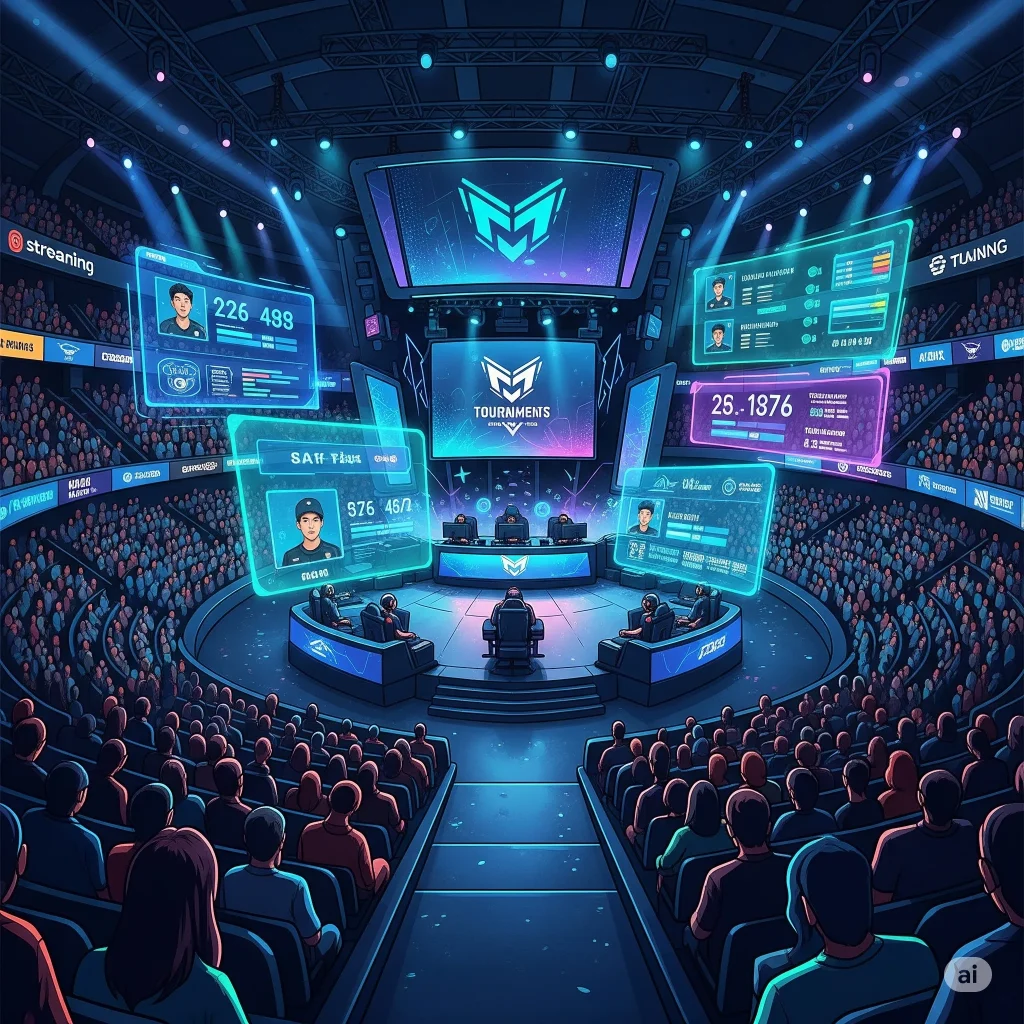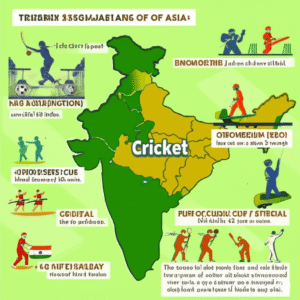When The International 2011 showcased a $1.6 million prize pool, most traditional sports executives dismissed it as a gimmicky publicity stunt that would fade within months. Fast forward to today, and that same tournament regularly exceeds $40 million in prize money while generating viewership numbers that rival the Super Bowl. But here’s what those early skeptics completely missed: major esports tournaments weren’t just creating entertainment — they were architecting an entirely new economic ecosystem that would fundamentally reshape how we think about competition, media consumption, and digital commerce. The ripple effects from these flagship events continue transforming industries far beyond gaming, creating billion-dollar markets that didn’t exist a decade ago.
Prize pool evolution — from basement LANs to million-dollar spectacles
The transformation of esports prize pools tells the story of an entire industry’s meteoric rise from hobby to global phenomenon. What started as friends pooling entry fees for local tournaments evolved into corporate-sponsored events with 1xBet and other major brands backing competitions with prize pools that exceed many traditional sports championships.
The crowdfunding revolution
Valve’s decision to tie The International’s prize pool to in-game purchases created the first successful crowdfunding model in competitive gaming. This innovation didn’t just increase prize money — it gave millions of players direct investment in tournament success, creating unprecedented viewer engagement and loyalty. The psychological shift from passive spectator to active contributor transformed how audiences relate to competitive events.
Economic validation through prize escalation
Rising prize pools provided the economic validation that esports needed to attract mainstream sponsors and media partners. When tournament winnings began exceeding average annual salaries, professional gaming gained legitimacy that opened doors to traditional sports infrastructure, from training facilities to athlete management companies.
Regional investment competitions
Major tournaments sparked international competitions between regions to host premier events, driving massive infrastructure investments in gaming facilities, internet connectivity, and broadcast technology. Countries like South Korea, China, and Sweden made strategic investments in esports infrastructure that positioned them as global leaders in the digital economy.
Broadcast technology innovations that changed viewing forever
Esports tournaments didn’t just adopt existing broadcast technologies — they pioneered innovations that traditional sports now scramble to implement. The unique demands of broadcasting competitive gaming forced the development of new production techniques that revolutionized live event coverage across all entertainment sectors.
Multiple perspective innovation
Unlike traditional sports with fixed camera angles, esports required technology to seamlessly switch between multiple player perspectives, creating immersive viewing experiences that let audiences see competition from any participant’s viewpoint. This innovation influenced everything from reality TV production to corporate conference broadcasting.
Real-time data integration
Esports broadcasts pioneered the seamless integration of live statistics, player biometrics, and game analytics directly into viewing experiences. These innovations created new standards for sports broadcasting that traditional leagues now invest billions trying to replicate.
The technological innovations that emerged from esports tournament broadcasting include:
- Interactive viewing platforms — Allowing audiences to control their viewing experience, choose camera angles, and access additional data streams in real-time
- AI-powered highlight generation — Automatically identifying and editing key moments for instant replay and social media distribution
- Virtual reality spectator experiences — Creating immersive tournament attendance options that transcend physical venue limitations
- Multi-language simultaneous broadcasting — Enabling global audiences to experience tournaments in their preferred languages without production delays
- Social media integration systems — Seamlessly connecting tournament broadcasts with social platforms for enhanced engagement and viral marketing
- Mobile-optimized streaming technology — Developing compression and delivery systems that maintain broadcast quality on mobile devices and varying internet connections
These technological advances didn’t remain confined to gaming — they became industry standards that influenced everything from corporate communications to educational content delivery.
Talent development pipelines created by tournament ecosystems
Major esports tournaments created entirely new career paths that extend far beyond professional playing. These events generated demand for specialized roles that didn’t exist in traditional entertainment industries, creating professional opportunities for thousands of individuals with unique digital-native skill sets.
Casting and commentary evolution
Esports commentary required a completely different skill set than traditional sports broadcasting. Commentators needed deep game knowledge, rapid-fire explanation abilities, and the charisma to make complex strategic decisions accessible to diverse audiences. This created a new entertainment profession that combines gaming expertise with media presentation skills.
Production and technical innovation
Tournament production teams developed specialized expertise in managing complex technical broadcasts involving multiple game clients, player communication systems, and real-time data feeds. These skills translated directly to emerging technologies in other industries, from virtual conferences to interactive entertainment experiences.
Content creation ecosystem expansion
Successful tournaments generated massive demand for related content, from pre-tournament analysis to post-event breakdowns. This created opportunities for video editors, graphic designers, social media specialists, and content strategists who understood gaming culture and could create engaging material for passionate audiences.
Sponsorship models that revolutionized digital marketing
Esports tournaments pioneered advertising approaches that traditional marketing agencies initially dismissed as niche experiments. These innovations proved so effective that they fundamentally changed how brands approach digital-native audiences across all demographics and industries.
The authenticity-focused sponsorship models developed by esports tournaments created deeper brand connections than traditional advertising methods. Instead of interrupting content consumption, brands became integral parts of the entertainment experience through strategic partnerships that enhanced rather than disrupted audience engagement.
Successful esports sponsorship strategies focused on adding value to the viewing experience rather than simply displaying logos during breaks. This approach required brands to understand gaming culture deeply and develop partnerships that felt organic to the community rather than forced corporate insertions.
Integrated brand experiences
Rather than traditional commercial breaks, esports tournaments developed integrated sponsorship experiences that enhanced storytelling and audience engagement. Energy drink companies didn’t just advertise during tournaments — they created content series following player preparation and training regimens that provided genuine value to viewers while building brand association.
Direct audience monetization
Tournament organizers developed innovative ways for sponsors to connect directly with audiences through interactive experiences, exclusive content access, and community engagement programs. These models proved more effective than traditional advertising while providing measurable return on investment through engagement metrics and conversion tracking.
Influencer partnership evolution
Esports tournaments created the template for authentic influencer marketing by partnering with players and content creators who had genuine audience relationships. This approach influenced how brands across all industries approach influencer partnerships, emphasizing long-term relationships over one-time promotional arrangements.
The sponsorship innovations include:
- Performance-based partnership models — Tying sponsorship value to tournament success and audience engagement rather than just exposure metrics
- Community-driven activation strategies — Creating sponsorship experiences that encouraged audience participation and social sharing
- Cross-platform integration systems — Developing unified brand experiences across streaming platforms, social media, and in-person events
These models proved so successful that traditional sports leagues and entertainment companies now actively recruit esports marketing professionals to adapt these strategies for their own properties.
Regional growth patterns sparked by flagship events
Major esports tournaments created regional economic development patterns that governments and investment groups now actively pursue through strategic tournament hosting and infrastructure development. These events demonstrated how digital entertainment could drive significant economic activity and cultural influence on international scales.
Infrastructure investment cascades
Hosting major tournaments required substantial investments in internet infrastructure, gaming facilities, and broadcast technology that benefited entire regional economies. These investments attracted related technology companies and created lasting improvements to digital infrastructure that supported broader economic development.
Cultural export opportunities
Successful tournament hosting provided countries with powerful tools for cultural diplomacy and soft power projection. South Korea’s dominance in esports tournament hosting significantly enhanced its global cultural influence and attracted international investment in its technology sectors.
How tournament betting transformed competitive gaming economics
The integration of betting markets into major esports tournaments created new revenue streams that fundamentally altered the economic landscape of competitive gaming. These markets provided additional monetization opportunities while creating new challenges around integrity and regulation that the industry continues navigating.
Tournament betting brought mainstream gambling audiences into esports while introducing gaming communities to structured wagering experiences. This crossover created new fan engagement models and additional revenue sources that helped sustain the rapid growth of competitive gaming ecosystems.
The sophistication of esports betting markets now rivals traditional sports wagering, with complex markets covering everything from individual player performance to in-game economic metrics. This evolution demonstrates how quickly digital-native industries can develop mature financial ecosystems when supported by passionate audiences and innovative technology platforms.
Understanding these betting market dynamics provides crucial insights for anyone evaluating the long-term sustainability and growth potential of competitive gaming as both entertainment and investment opportunity.



